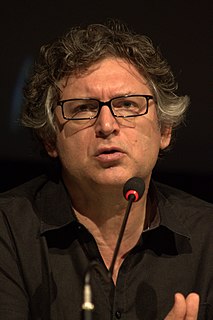A Quote by Terence McKenna
We have wandered into a state of prolonged neurosis because of the absence of a direct pipeline to the unconscious and we have then fallen victim to priestcraft of every conceivable sort.
Related Quotes
I think institutions will inevitably substitute a rite or a ritual for the authentic, for the real McCoy, because then priests can control the pipeline to god, and the parishioner can approach with offerings. But if everybody can have a pipeline to deity, why then the whole priest scam is put out of business.
Being a victim doesn't take much. There are built-in excuses for failure. Built-in excuses for being miserable. Built-in excuses for being angry all the time. No reason to trying to be happy; it's not possible. You're a victim. Victim of what? Well, you're a victim of derision. Well, you're a victim of America. You're a victim of America's past, or you're a victim of religion. You're a victim of bigotry, of homophobia, whatever. You're a victim of something. The Democrats got one for you. If you want to be a victim, call 'em up.
I write my first draft by hand, at least for fiction. For non-fiction, I write happily on a computer, but for fiction I write by hand, because I'm trying to achieve a kind of thoughtless state, or an unconscious instinctive state. I'm not reading what I write when I wrote. It's an unconscious outpouring that's a mess, and it's many, many steps away from anything anyone would want to read. Creating that way seems to generate the most interesting material for me to work with, though.
To answer oppression with appropriate resistance requires knowledge of two kinds: in the first place, self-knowledge by the victim, which means awareness that oppression exists, an awareness that the victim has fallen from a great height of glory or promise into the present depths; secondly, the victim must know who the enemy is. He must know his oppressor's real name, not an alias, a pseudonym, or a nom de plume!



































